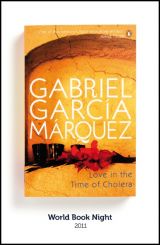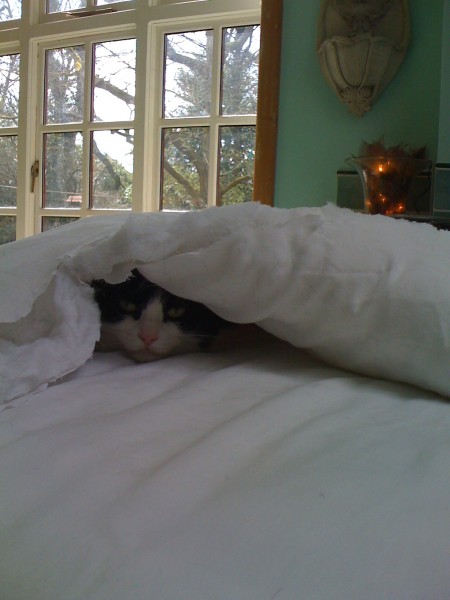I Love Elle and EcoChic
I got a subscription to Elle this Christmas. Yay! It took me a loooong time to come to fashion. When I was seventeen, I wouldn’t have been seen dead with a copy of Elle. If I saw one of my friends reading a ‘woman’s magazine’, I sneered down my nose at it. There was actual lip-curling contempt. I thought my subscription to SFX made me infinitely superior to my friends with their gawking at ridiculously high-priced fashion trinkets and the endless makeup and Gucci adverts inside those glossy pages. I’m a Captain Kirk girl, I would say in my most defiant tone. I must have been insufferable.
My problem (apart from being completely stuck up about it, that is), was that I failed to appreciate what Elle Magazine is really about. I thought it was all about status symbol shoes that none but the fabulously wealthy could ever afford to buy. I thought it was a slap in the face to any self-respecting feminist. So I stuck my tongue out at the magazine and insisted on walking around college with a battered copy of Pride and Prejudice instead, whilst completely missing the point that Elle would love Jane Austen because Elle loves any successful woman. Elle is not just about the catwalk, it is a celebration of being female.
The magazine doesn’t just profile fashion designers, they also interview novelists, comediennes, TV presenters, actresses and journalists too. They write articles about art and literature, film and travel. An edition I read last year even contained an article about becoming a writer.
Certainly a large part of the magazine is about beauty and fashion but Elle are far more interested in the style and life of Grace Kelly than, say, Paris Hilton. And they are independently-minded when it comes to fashion too, as opposed to the slavish followers of fleeting trends I always imagined them to be. One edition I bought last year contained an article titled: ‘Is Fashion Racist, Ageist and Fattist?’ In a different edition, ‘Your Body – What’s the Right Size?’ celebrated the different types of female figure. Far from perpetuating the size zero phenomenon, the magazine challenges it instead (on behalf of real-live, actual food-loving women everywhere).
Most of all, the magazine promotes diversity, variety and personal style. It is a celebration of individuality and of the self. It encourages readers to love books as well as shoes, to have an interest in fashion as well as to nurture career ambitions, to want a solid relationship with a boyfriend/partner, sure, but to not want that and only that. The magazine is a consistent celebration of being a woman in a modern world and of being free to pick and mix different interests, hobbies, likes, dislikes and passions. In this way, Elle is one of the most inclusive and open-minded types of magazine there is because it reaches beyond its own area of expertise (that of fashion and beauty) and is quite happy to dabble in countless other areas. Where else would you get articles about the newest mascara alongside glowing praise for the work of Edgar Allan Poe and the Twilight Series? Or a reference to Gabriel Garcia Marquez in an article that is, essentially, about rom-coms? Or see a one-page spread on how to wear polka dots this season alongside an article that begins with the comment: ‘All girls love Han Solo’? (It’s true, by the way – we do.)
Elle does not sneer at Star Wars the way I once sneered at glossies. They’re quite happy to take a slice out of every pie if they see something they like there. There are no cliques here, no constraining little boxes. You can love Star Wars and you can love lipstick. I love Elle because although it’s fiercely stylish, it’s fiercely intelligent and independent too.
I wrote a blog post a while back about feminism and how TV female role models have changed over the years by comparing Elena from the Vampire Diaries with Sam from Bewitched. I think that drippy, empty-headed, whiny Elena would read (if you can call it reading since there are more photos than words) a sensationalist celebrity gossip magazine like Hello (if she could tear herself away from Stefan long enough to read anything at all, of course). But Sam, with her independence, her class, her intelligence, her sense of humour and her sense of mischief, would most definitely read Elle.

This advert for Agent Provocateur’s new perfume is like a visual representation of everything that’s so good about Elle. It’s very beautiful with its brooding overtones of cool French sophistication and an impossibly chic model but rather than having her kissing some half-naked stud, what do they have instead? They have her playing chess. There is no man in sight in this advert (half naked or otherwise). It’s all about the woman. Bravo, Agent Provocateur. Since discovering pure lotus flower oil in Egypt I rarely wear perfume anymore but this advert ticks every box for me and, if I could succeed in confirming that this company does not test its products on animals, I’d seek out this perfume tomorrow.
And therein lies the one niggle that I have with Elle – I would love to see more of a focus on ethical beauty and fashion. Although green issues do make the occasional appearance, it would be nice to see much more of that along with some discussion of the animal rights issues in the cosmetics industry as well. Realistically, this is unlikely to happen any time soon since so much of the fashion world is corrupted with gross mistreatment of animals but, still, I can’t help thinking that if Elle can challenge size zero then surely they can challenge animal-tested make-up too. It’s an evil that need not exist, and should be eradicated, but only will be when consumers, and publications like Elle, protest long and loudly enough.
In the meantime I am very much enjoying writing for EcoChic Magazine (check it out here: http://www.ecochicmagazine.co.uk/). Where else would I get to write about international human rights and organic chocolate body butters? Sweet perfection.







